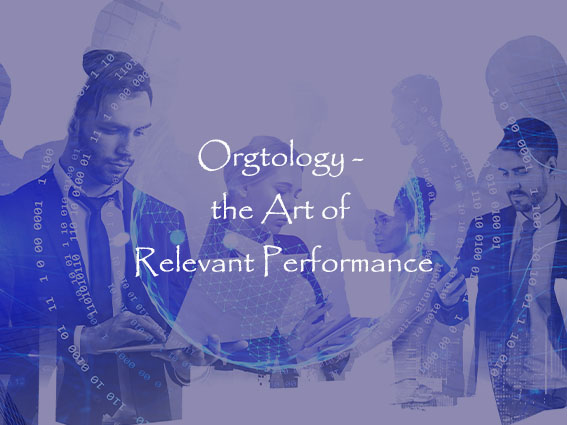In leadership and strategy development, mission and vision are both first and foremost. But what is their difference? Which one is first and how does one conclude them?
The difference between vision and mission is a confused and misunderstood concept. In many cases they say the same thing, but in a different word order. Even in fortune 500 companies one finds missions that should be visions and vice versa. Companies often find it hard to distinct between the two. If you ask for an explanation on their difference, few can give a conclusive answer. Most executives will tell you that vision is where we want to go, and mission is how we will get there. This conclusion makes some, but not total sense. If mission is how we achieve vision, then what is strategy? An Orgtologist would rather argue that mission is who you are and vision is what you intend to do with that. How you get from one place to another is a matter of strategy.
This perplexity begun in the early European military world. Armies had mission. This was a project-based concept which aims to conquer, kill, and then return home. The aim was to complete a mission. During the industrial age, business theory came to be. In this, we stole the "mission" concept from our militant past. Yet, unlike military operations, we do not want our organisations to end. To sort this problem, we created vision - that which cannot end. We are currently far beyond the information age. In so, the nature of mission and vision has dramatically changed in meaning and application. To me, the right terminology should be "statement of purpose" and "statement of intent". I currently have many clients who define it in this way. It makes what they do clear.
Mission is purpose and gives meaning. Vision is intent and brings hope. Their relation is inverse. They direct two important parts of any organised system. Purpose gives stability and order. In so, it authorises the processes of Org. Intent brings change and renewal. In so, it energises the strategy of Org. Respectively, purpose empowers and intent influences. Purpose or mission directs the management function. Vision creates strategy and is a leadership function. Purpose is process-based. In this, it aims to repeat the past in the most efficient way. Any organisation will try to make its purpose more relevant. To aid this, Org must create intent, which will become strategy that will bring change. The aim is to make intent irrelevant. Intent is project-based. This is a non-repetitive task that aims to influence the future. E.g. I want to lose 10kg of weight (my vision). If I do so, I will make this desire irrelevant. My intent must now become a maintenance function (mission). The aim is thus to turn a once-off non-repetitive project into a cyclic process.
| Purpose (mission): | Intent (vision): |
|
·
Gives authority to Org. · Ignites processes. · Contains risk. · Brings order to chaos. · Is evolutionary in nature. · Should not change, and if it does, change should be slow and gradual. · Aims to become more relevant. · Efficient. · Managers direct it. |
·
Drives the energy of Org.
· Creates strategy. · Creates risk. · Brings chaos to order. · Has a revolutionary nature. · Should change to bring strategic success. Change must be fast. · Aims to become irrelevant. · Effective. · Leaders drive it. |
To begin strategic initiative, we must ask the right questions. In this, it is key to grasp our end result. With purpose, we ask questions that will enhance our reason for existence. We thus commit to a statement that we will nurture and grow with no end in mind. The aim of "mission" is to have a clear purpose. This will direct organisational performance. With vision we ask questions that query our future relevance. These questions will bring doubt to our current process efficiency. It will show our risks and probe opportunities. In short, we call this EOP. It stands for risk Exposure, Opportunities, and Process efficiency. EOP helps us to survive. It critically questions our ability to effectively relate to our external environment. We thus deliberately inject neurosis into our system. To kill this self-inflicted neurosis, we must create strategy. Unlike purpose, the questions that ignite intent has a definite end in mind. We can only claim strategic success if vision dies! When desire becomes reality, we will create new intent. This will bring change that we must uphold - our operations. I find that old and powerful organisations are purpose and process-driven. To name only a few: The Roman Catholic Church; Buddhism; the Rolling Stones; and Coca Cola. In precis, questions that create purpose aims to give certainty. Contrariwise, questions that create intent aim to create uncertainty. Together they keep an equilibrium that we must have for sustainable growth.
| Questions that we ask to decide mission: | Questions that we ask to decide vision: |
| ·
What is our purpose?
· Why is this our purpose? · What are our core processes? · Where must we do this? · For whom do we do this? · What are the inherent risks to this purpose? · What is critical for this purpose work? |
·
Within the boundaries of our purpose, where do
we want to be?
· Why are we not there yet? · What if…? · What if we go somewhere else? · In which ways are we different? · When will what we currently do become irrelevant? |
As mentioned, a mission statement should give clear purpose that will direct process efficiency. Clear purpose is the test of strong mission. To avoid confusion, a mission statement should not create a future desire. E.g. "To provide…" or "Being the…" shows future desired action. A good mission statement implies immediate responsibility for an existing state. E.g. "We provide…" or "At ABC we are the…".
Examples of statements of purpose (missions) that I have facilitated for clients:
- "We foster price and financial stability that is conducive to the economic development of Eswatini." (Central Bank of Eswatini)
- "We are the hub for stimulating an innovation-based economy to the direct benefit of Eswatini." (The Royal Science and Technology Park)
- "At ESEPARC, we generate evidence and knowledge on economic policy effectiveness to enable informed decision making in the Kingdom of Eswatini." (Eswatini Economic Policy Analysis and Research Centre)
- "We provide total logistics solutions to promote trade." (Eswatini Railways)
- "We provide an effective and efficient revenue and customs administration, driven by a high-performance culture that promotes compliance through fair, transparent, and equitable application of the law." (Eswatini Revenue Authority)
- "We regulate and supervise financial services to protect stakeholders and foster a stable financial system in Eswatini." (Financial Services Regulatory Authority)
- " One-stop-shop for agricultural products and services." (Botswana Agricultural Marketing Board)
- "We resolve non-bank financial services disputes, free of charge, in a fair and accessible way, to uphold good industry practice in Eswatini." (Ombudsman for Financial Services)
- "We enable companies to list and investors to trade in securities." (Eswatini Stock Exchange)
- "We regulate the practice of Orgtology." (The International Orgtology Institute)
Vision creates uncertainty because it defines a state that does not exist yet. In so, it will define strategy. The aim of strategy is to remove that uncertainty. Therefore, vision creates a gap between the current and a desired reality. Strategy must find ways to close that gap. If Org does close that gap, then it was effective in its strategy. Unlike mission, vision implies a future state.
Examples of statements of intent (visions) that I have facilitated for clients:
- "A stable price and self-regulatory financial system." (Central Bank of Eswatini)
- "The leading oasis of science and innovative technologies for wealth creation." (The Royal Science and Technology Park)
- "The think tank of think tanks." (Eswatini Economic Policy Analysis and Research Centre)
- "Your only logistics partner to global markets." (Eswatini Railways)
- "100% Voluntary compliance for a better Eswatini." (Eswatini Revenue Authority)
- "A world class regulator of financial services." (Financial Services Regulatory Authority)
- " Global benchmark in facilitating food security." (Botswana Agricultural Marketing Board)
- "The leading African forum in resolving financial services disputes in a free, fair, and accessible way." (Ombudsman for Financial Services)
- "The most functional stock exchange in Africa." (Eswatini Stock Exchange)
- "Orgtology drives all Organisations." (The International Orgtology Institute)
One last dilemma that we must work with is which one is first? This is a chicken or egg situation. No organised system can exist without purpose. We cannot determine where we want to go if we have no idea who we are. However, in the very beginning, it was vision that created mission. After that intent will always be within purpose. So, mission follows vision, after which vision will follow mission. In marketing documents, it is widespread practice to put vision first. This is so since a vision is "sexy". It creates desire and presents the external world with a dynamic belief. Yet, the fact that it is written first does not imply that it was conceived first. I have never been to a strategy session where we could create vision outside of mission. Intent must always be within purpose. The only exception is the human mind who created the intent that created Org. After that vision will depend on the change that Org needs to expand its purpose. Mission can only cease where purpose has become irrelevant. As leaders come and go, visions will be born, and they will die. Yet, for as long as any organised system evolves and survives, mission will stand strong. There can be no vision without mission, and vice versa.

